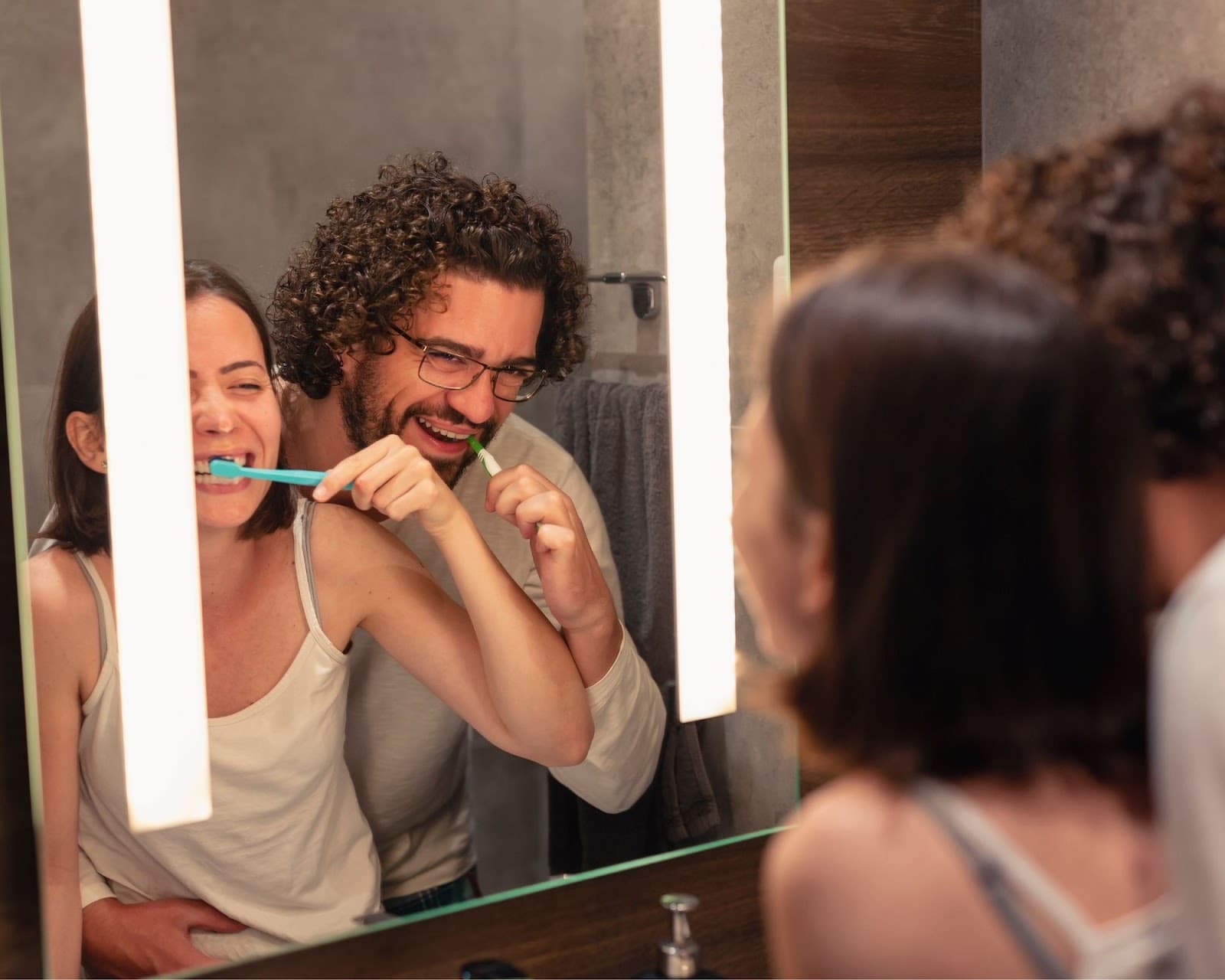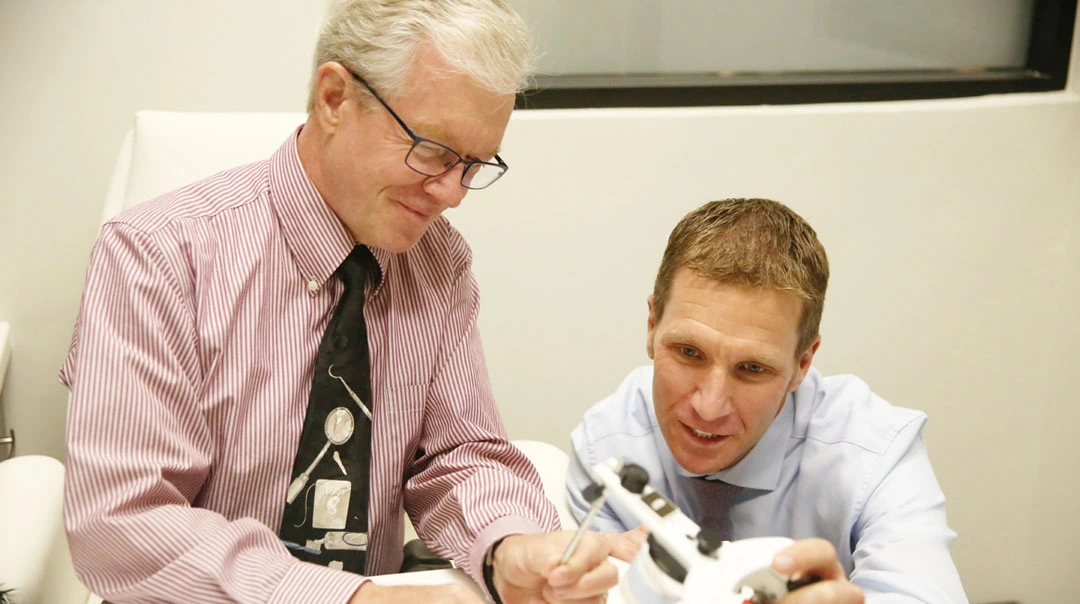
Do you ever have those nights where you wish you could just push a button and be in bed? Brushing your teeth and washing your face are often the steps of a bedtime routine that can easily be pushed aside when you’re feeling too exhausted. You might wonder, is brushing before bedtime necessary when you already brush during the day?
Studies show that brushing before bedtime is one of the most important times to brush your teeth. Our dentists highly recommend brushing your teeth before bed. One main reason for this is that your salivary glands slow down saliva production at night while you sleep.
This means that there is less lubrication and protection for your teeth. Also, while you are asleep, those little bacteria in your mouth are not. They love to party all night long, which is a prime time when they can cause cavities and gum disease problems.
Plaque
Plaque is the sticky layer of bacteria constantly forming on your teeth. Plaque is often whitish in appearance, so it often goes unnoticed by most people, especially those who brush regularly. Over time though, this layer can become quite destructive when not brushing or flossing.
Removing this layer 100% is not possible; however, it is essential to be breaking up this film on your teeth. After all, these bacteria are the guys that lead to gingivitis and cavities when things get out of balance.
Gingivitis
Have you ever noticed these symptoms?
- Red gums
- Swollen gums
- Bleeding gums
- Irritated gum tissue
- Inflamed gum tissue
If you have, you likely were experiencing gingivitis. Gingivitis is the inflammation of your gum tissue or the tissues surrounding your teeth. Maintaining good home care and keeping these bacteria under control can help to keep your gum tissue healthy and free of inflammation.
Halitosis
Halitosis is a fancy word for bad breath. Everyone experiences morning breath from time to time. Plaque and the bacteria on your tongue and around your gum tissue can lead to bad breath when not removed often enough. If you find this an ongoing problem, make sure that you are brushing and flossing before bed.
Cavities
Going to bed without brushing means that those acid-producing bacteria will be digesting any remaining particles of food or sugar that you had ingested during the day. This acidic environment can be extra harsh on your teeth at night because your body slows down saliva production.
Good Oral Hygiene Habits
Creating good oral hygiene habits is key to reducing and managing the bacteria in your mouth. A well-balanced mouth will mean fewer cavities, gum disease, and a healthier mouth. The best way for you to have a healthy mouth is by incorporating these three simple routines:
- Floss: Flossing daily helps break up bacteria and food particles that like hanging out between your teeth and under your gum tissue.
- Brushing: Be sure to brush for 2 minutes twice a day. If you still feel halitosis is a problem, brushing with a tongue scraper can also benefit you.
- Rinsing: Rinsing daily with an antimicrobial rinse can help to keep bacteria under control.
Still Struggling To Brush At Night Before Bed?
We understand how hard and challenging it can be to brush late at night when all you want to do is climb into bed. We would love to suggest a trick that has helped many with this problem. You can brush after dinner if you don’t eat anything after dinner. If you usually still like an evening snack, brush after eating the snack.
You shouldn’t need to brush right before bed as long as you don’t eat anything or drink anything other than water after brushing; you shouldn’t need to brush right before bed.



Leave a Reply